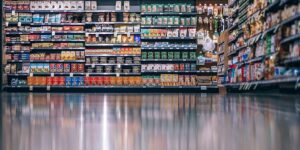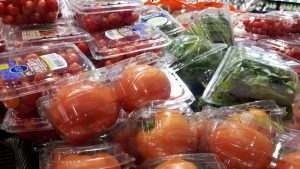How can Canada reduce plastic food packaging? Have your say now
Studies indicate that food packaging waste makes up about one-third of all household waste in Canada, with only 20% being recovered for reuse and recycling.
To address this issue the Government of Canada, through Environment and Climate Change Canada (ECCC), is proposing to publish a pollution prevention (P2) planning notice. The P2 Notice is intended to effectively reduce the environmental impact associated with primary food plastic packaging while accounting for the unique challenges posed by food safety regulations and more.
News Release
Canadians are concerned about plastics littering beaches, parks, streets, shorelines, and other places they value. To address the environmental crises of climate change, biodiversity loss, and pollution, there is a need to do business differently. That is why the Government of Canada is taking action to reduce plastic pollution through a comprehensive approach that addresses the entire lifecycle of plastics.
As part of its commitment to move toward zero plastic waste, the Government of Canada is proposing to develop a Pollution Prevention Planning Notice (P2 Notice) for plastic packaging that comes into direct contact with food, also referred to as primary food plastic packaging. The P2 Notice would require Canada’s largest grocery retailers to prepare and implement a pollution prevention plan to meet targets to reduce, reuse, and redesign primary food plastic packaging, including recycled content targets. This builds on efforts and commitments by grocers and food brands to reduce plastic waste and shift away from single-use and difficult-to-recycle plastics toward a circular economy.
Plastic food packaging makes up approximately one-third of all plastic packaging in Canada, with a significant amount of that intended for single use. Examples include juice boxes, produce bags, yogurt containers, and meat trays.
This P2 Notice would contribute to the Government of Canada’s agenda to address plastic waste and prevent pollution by:
- Getting rid of unnecessary or problematic plastic packaging.
- Replacing single-use plastic packaging with reuse-refill systems.
- Making sure any plastic packaging used is designed to be safely reused, recycled, or composted.
The P2 Notice would also include targets to increase the sale of products within reuse-refill systems, concentrated products, and products free of plastic packaging. Together, the P2 Notice and the proposed Recycled Content and Labelling for Plastic Products Regulations, which are targeted for publication before the end of 2023, would reduce the overall threat of harm posed by plastic items in the environment.
Until August 30, 2023, grocery retailers, stakeholders, interested partners, and Canadians are invited to comment on the consultation document for the development of the P2 Notice. Comments received will help develop a Proposed Notice to be published later this year.
Quotes
“Plastics play an important role in the everyday lives of Canadians. However, a significant amount of plastic food packaging is used only once and then ends up in landfills as waste, or in the environment as pollution. The solution lies in the concerted action and combined efforts of all governments, industry (in this case, major grocery retailers), and Canadians. By getting rid of problematic plastic food packaging, replacing single-use packaging with reuse-refill systems, and ensuring that plastics, if needed, are designed to be safely reused, recycled, or composted, we can all help move Canada toward zero plastic waste.”
– The Honourable Steven Guilbeault, Minister of Environment and Climate Change
Environment and Climate Change Canada, August 1, 2023.
For more information, see the original news release by Environment and Climate Change Canada.



